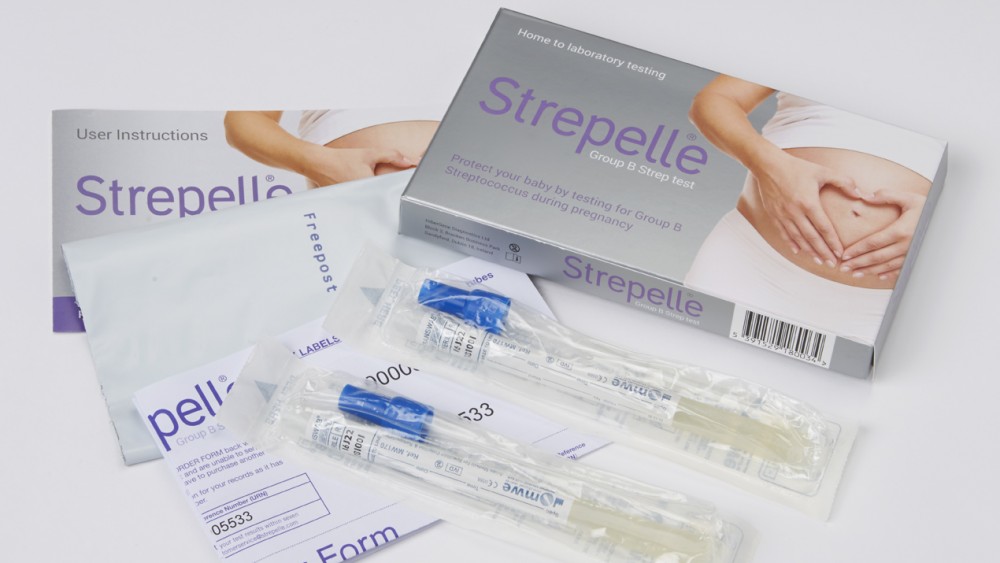Up to one in five of all pregnant women will be carriers of Group B Strep in the birth canal and the bacterium can be passed during labour to their baby. One in five newborns who are infected with Group B Strep suffer from serious, life-changing illnesses which can have life-long effects such as brain damage, hearing loss and sight loss. One in ten babies with the infection will die from it.
Strepelle is a home-to-laboratory Group B Streptococcus (GBS) test which can be bought at www.strepelle.com or at independent pharmacies will be reduced to £35 (normal price £39.99) throughout July to support the campaign. The test simply allows pregnant women the opportunity to test for this devastating infection from 35 weeks, with the highest accuracy ECM testing. If positive they are sent a letter to give them access to the potentially life-saving antibiotics during labour.
Strepelle will be supporting Group Strep B awareness month, with specialist advice from consultant midwife, Leanna Beckford who will be present on the Strepelle twitter, facebook and Instagram social media to offer further peace of mind to pregnant women and couples.
The UK is currently one of the only developed countries in the world which doesn’t offer routine screening for GBS. In the UK, 70 babies a year die from Group B Strep infection
The only way of knowing if a pregnant woman is carrying the bacterium is by having a laboratory test. The highly accurate and easy to use Strepelle test (www.strepelle.com) will determine whether the pregnant woman is carrying the bacterium.
Brendan Farrell, CEO of Strepelle, said: “Strepelle is proud to be supporting Group Strep B Awareness month and is hoping that the awareness generated will help us reach our aim to significantly reduce the many risks associated with Group B Strep in newborn babies across the UK. Once GBS is detected, Strepelle enables healthcare professionals to tailor a care plan to expectant mothers, ensuring that the correct treatment is administered during labour which will prevent babies from becoming exposed to the potentially harmful bacterium.”
You can read more about Group B Strep on the NHS website here: http://www.nhs.uk/chq/pages/2037.aspx?categoryid=54









Comments are closed.